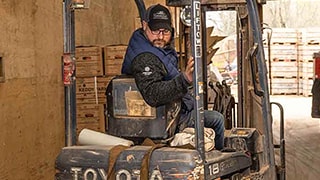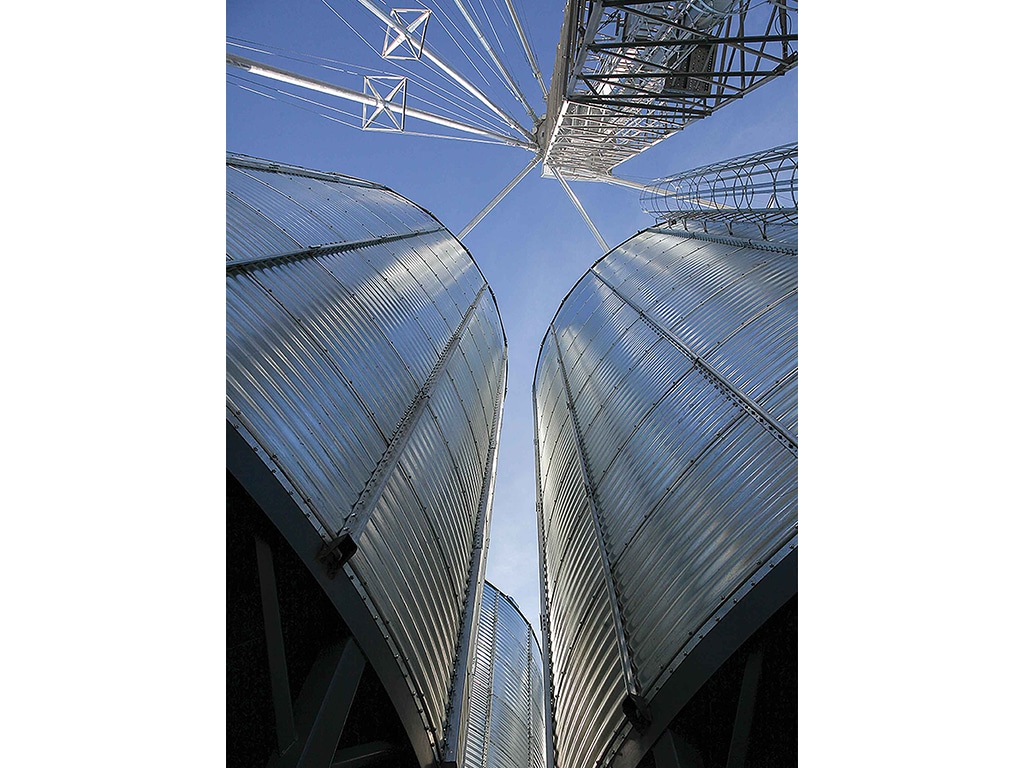Agriculture, Farm Operation September 01, 2023
Take the Plunge
.
Overcoming greed and fear when marketing grain.
Marketing grain has been like riding a roller coaster the past few years. There were lots of big climbs and heart stopping drops. Even though producers now have instantaneous access to almost unlimited information, satellite data and consultants, most are still struggling to take the emotionality of the greed/fear cycle out of their marketing decisions.
"I really fight with this at times because there's just so much information out there," says Gerrid Gust, a farmer from Davidson, Saskatchewan. "You think you know what you want, but I worry I'm just looking for the data that matches my own confirmation bias. I can find all this information that shows that the markets are going to go up only to have them turn against me."
Most farmers can tell a tale about the price that got away. One where they sat and watched a commodity climb through record highs without contracting a bushel because they were certain prices were still going higher. But they quickly sold in a panic when the prices started to plunge.
Above. "It's very difficult to overcome your emotional biases when you are marketing grain, at least for me," Shaw says. "But, you really need to check them at the door."
Marketing would be so much easier if you had a time machine. That way you wouldn't worry you had let greed overtake common sense when you snubbed that $8 price being offered for wheat in Ontario (at the time of writing) because your target was the $15 price spike some sold for last year.
"I don't know many who have it really figured out over the long term," Gust says. "You always hear about the successes but not the failures. A friend sold all their canola last November and now it's looking like the smartest decision anyone could have made. But we've had some honest conversations and he's been on the wrong side a couple times, too."
"I write a lot about grain markets," says Phil Shaw, a farmer and an agricultural economist from Dresden, Ontario. "People often ask me, 'what's the price of corn going to do?' and my standard answer is, 'I don't know.' I struggle with the emotional marketing biases that I have collected over a lifetime of farming."
The first step to reducing the impact of the greed/fear cycle is understanding what it is. Essentially, it's an economic consensus that says when the markets are pessimistic, prices will drop and when they are optimistic, prices will rise. However, since optimism and pessimism are emotional reactions to what is happening in the marketplace and events on the world stage, prices can rebound or fall quickly when their mood changes. Ultimately, being able to manage the greed/fear cycle to market grain requires a deep understanding of market cycles and keeping keen eyes open for emerging trends.
"It's very difficult to overcome our emotional biases when we're marketing grain, at least it is for me, but you really need to check them at the door," Shaw says. "One method I use is to continually remind myself that there is a certain seasonality with grain prices. Historically new crop corn prices will hit their highest point in mid-June and soybeans hit theirs in early July most years. If there are any risks to any of the new crops growing in North America, it will show up in the markets at that time."
"You do need to sell some crop early to have cash flow to pay the bills," Gust says. "But we've learned we can't afford to get too aggressive preselling our crop in case we get that hailstorm that wipes us out. But as long as you're selling above your true cost of production, fixed variable and a little margin for management, you are doing okay." ‡
Read More

AGRICULTURE, FARM OPERATIONS
Stay Safe Out There
Fatigue can be a killer at harvest time.

SUSTAINABILITY
Designing for the Full Product Lifecycle
We're building a better tomorrow by rebuilding yesterday's machines.



